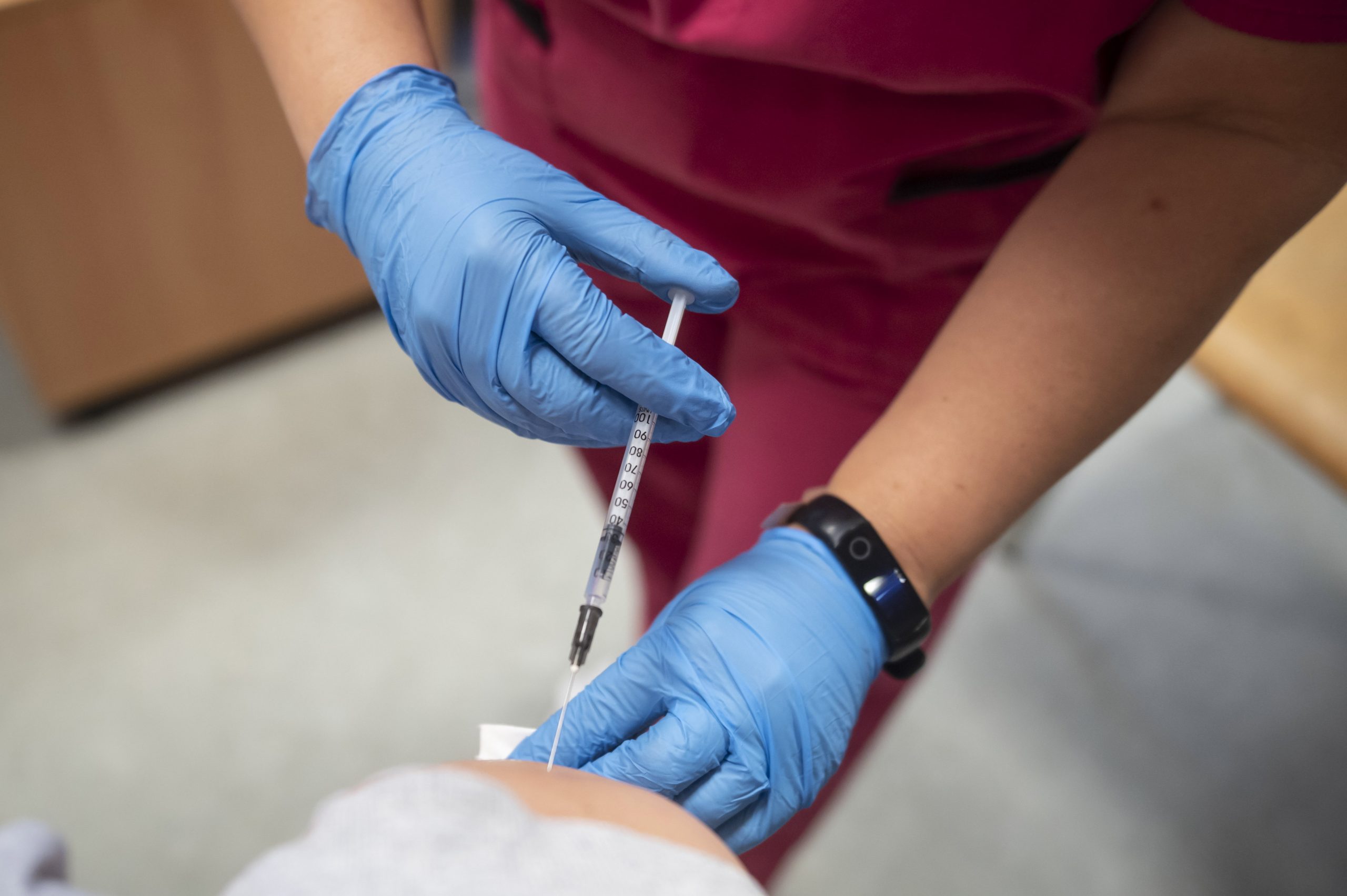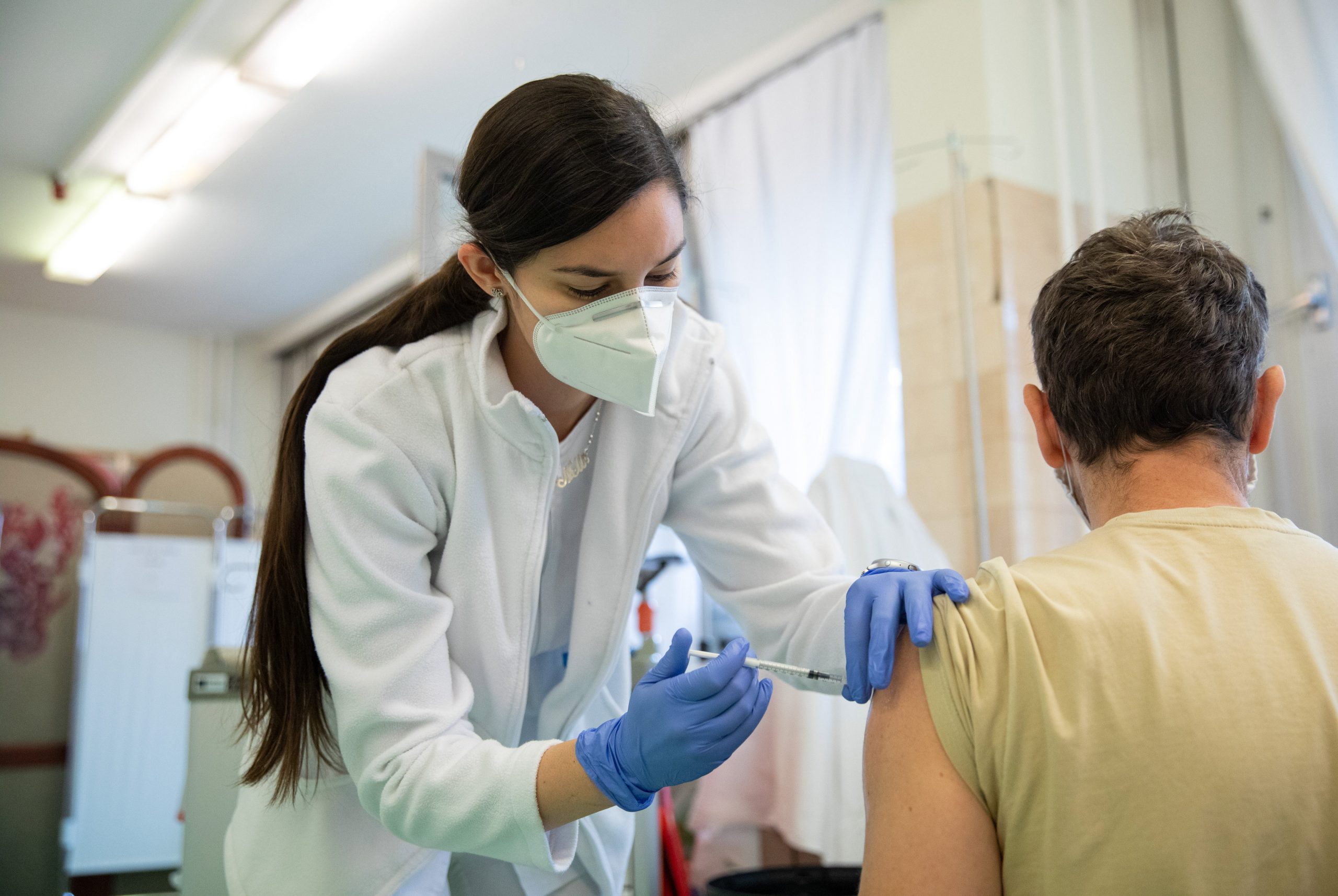
"I was really curious to find out what would happen if I went to a vaccination point for a third shot after already receiving a third dose. I easily got it," said Balázs Pártos.Continue reading

As in other European countries, the fourth vaccine dose is becoming an increasingly debated topic in Hungary. Although some Hungarian experts warn that a second booster shot may be necessary due to the rapid spread of the omicron variant, the government is hoping that the third jab against the new mutant will be sufficient. Viktor Orbán justified the government’s stance in part by saying people will eventually get fed up with continuous vaccinations. At the same time, Hungary has rejoined the EU’s new vaccine procurement program in a bid to protect its population against the Omicron variant. This suggests that it might not be unlikely that it will be authorized in the future, and the booster jab will be followed by other vaccinations against the coronavirus.
A few weeks ago Hungary’s National Public Health Center (NNK) updated its guidance on coronavirus vaccination. According to the new set of recommendations, a fourth vaccine dose is not advised, especially for those traveling or working abroad.
Meanwhile, the new, highly contagious omicron variant of the coronavirus has been spreading rapidly in Hungary in the past weeks. Looking at the current data, it is most likely that the trend will continue in the coming weeks as well.
NNK’s laboratory samples suggest, that the omicron variant which was first detected in the country only a few weeks ago is already responsible for more than 11 percent of new infections. At Neumann Labs, the first private laboratory to detect the variant in Hungary, however, this rate has already reached 80 percent.
Thus, the rapid spread of the new covid strain, which experts say could start Hungary’s fifth wave, raises the question: will a fourth vaccine dose soon be necessary?
At this point there is no scientific consensus on fourth Covid-19 shots, most European countries are currently debating the subject and have yet to announce plans for it.
As the first country in the world, Israel already approved a fourth vaccination for people over 60 and the immunocompromised. Two weeks ago, Germany’s Health Minister Karl Lauterbach also said he expects that a fourth coronavirus vaccine will be needed.
In Hungary, only three vaccine doses are allowed – although some managed to get their second boosters without much of a hassle.
But Hungarian experts tend to agree that indeed a fourth jab could be the approach against the new variant.
“There may be individual deviations, but after the third vaccine, a fourth one will be necessary in time,” warned immunologist András Falus, member of the Hungarian Academy of Sciences.
Virologist Miklós Rusvai expressed a similar opinion.
“The sooner the fourth vaccine dose becomes available in Hungary, the better,” Rusvai told tabloid Blikk.
The virologist said that all vaccines protect against all virus variants; so the vaccines developed earlier are also effective against omicron.
As for the length of time between two vaccinations, he pointed out that the “immunological minimum” is four months, which is the time period the vaccine would surely remain effective, and six months is the limit of effectiveness, beyond which it is unlikely that a valid immune response will be produced. Consequently, it is advisable to revaccinate after six months for at-risk groups, including the elderly, immunocompromised patients and health workers working “on the frontlines.”
Just as Miklós Rusvai mentioned, the question of the fourth vaccine is particularly important because Hungary was the first country in Europe to authorize the administering of a third dose in early August. Thus, those who were among the first to take it (especially doctors, elderly people, immunocompromised people) might need their second booster shot as early as February.
Prime Minister Viktor Orbán talked about the issue of the fourth vaccine dose at an international press conference before Christmas, and it was clear from his words that his government does not support it for the time being. The Hungarian prime minister said that the third vaccine is a key issue for the country because he believes Hungarians will eventually get fed up with the series of vaccinations.
“I consider it a key issue today that the third vaccine should work because we will get tired of it after a while. After all, vaccination is a matter of trust. If I look like an Emmental cheese, excuse me, after a while… How long? Will there be a tenth? And a fifteenth? Or how so? I’m very hopeful that this third booster shot will do the job. If I had to go for a fourth, I’d have a hard time, so I’m very hoping that the third one will also be a winner against omicron,” Orbán said.
On a slightly contradictory note, Hungary has also rejoined the EU’s third vaccine procurement program so that Hungarians would get access to Pfizer’s new COVID-19 vaccine adapted for Omicron. (Hungary has been the only EU country to opt-out of the scheme last May.)
This likely shows that the government does not rule out the introduction of a fourth vaccine and may even authorize it in the future. After all, this wouldn’t be the first time since the outbreak of the coronavirus epidemic that the government’s position on something related has changed overnight.
Featured photo illustration by Balázs Mohai/MTI